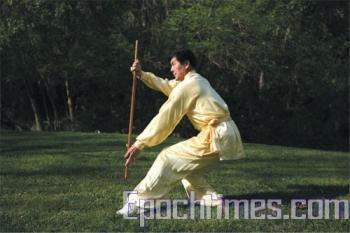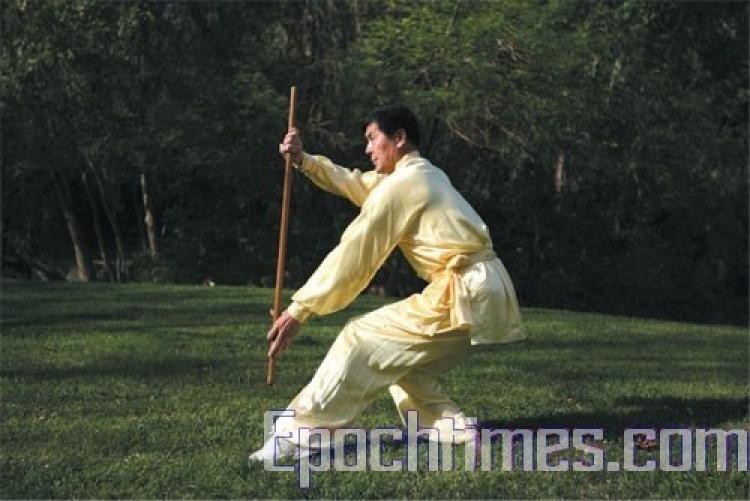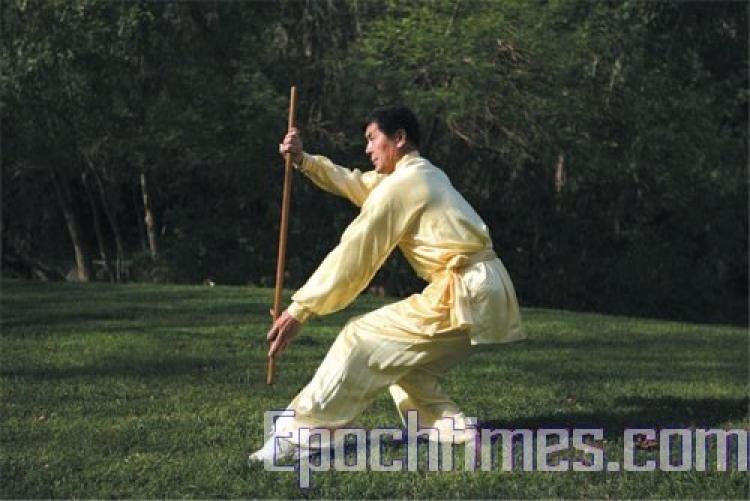An Art Uniting the Internal and External
Traditional martial arts performance is not just a superficial show of agility and flexibility, but also a reflection of one’s inner being. A main feature of traditional Chinese martial arts is to nurture one’s body from the inside out to unite the internal and external parts of the human body.
Neijia Quan and Taichi Quan are both internal styles of Chinese martial arts, which require practicing mechanisms related to circulating qi (breath) within the body. They also practice increasing vital energy, such as the qi of Dantian (lower abdominal area). A person whose qi circulates very well along the meridian channels of Dantian is considered to have reached a high level. Mind activities are used in internal styles to calm one’s thoughts and enter tranquility in order to develop great amounts of vital energy. Though there are no obvious changes from the appearance, scientific instruments are able to detect increased energy.
Mr. Li Youfu, the chairman of the judging committee at the Global Chinese Martial Arts Competition, has been practicing martial arts for 48 years. According to Li, during his pervious research on martial arts, he discovered that through practice, slow brain waves will develop and synchronize. The energy of the meridian channels will also become four to five times stronger than normal levels.
A New Application of Physics
Waijia Quan, an external style of martial arts, practices from the outside in. It requires training the external—the muscles and physical body—and the internal breath. Since it trains externally and internally, it involves difficult movements with a simultaneous relaxed state of being. As a result, quick and forceful strikes can be delivered with relaxed muscles.
Waijia Quan follows the principles of mechanics. Both internal and external Chinese martial arts conform to the law of forces and motion. Forces from different parts of the body are synthesized into a total force, integrating mechanics.
The spiritual and rhythmic sides of martial arts reflect its skill and virtue. The beauty and advanced skills acquired through martial practice are considered to be virtue. Even the emphasis on using martial arts to stop evil and promote goodness is considered to be virtue. The martial forms that only practice fighting techniques for combat can’t be considered martial arts because martial arts require virtue.
Cultivation: A Higher Level of Martial Arts
Li believes that the pinnacle of martial arts is cultivation—something that far surpasses martial arts. Li said that the advanced martial arts masters that he knows eventually practice meditation and entering into tranquility. According to Li, those masters could be considered supernormal because they are impossible to strike; they seem to just fly away.
Li believes that cultivation is the key to advancing beyond superior martial skills. He said that cultivation surpasses martial arts because it allows for liberation from the physical being. Once the body is no longer restricted, one rises above normal martial arts. Li said that he didn’t believe this was possible till he personally experienced it through practicing Falun Dafa, a Chinese cultivation system.



